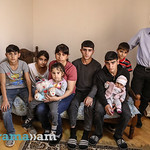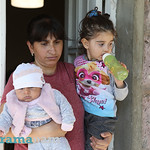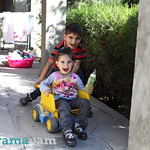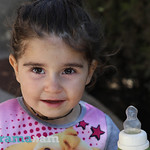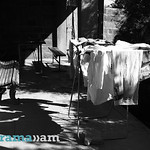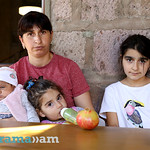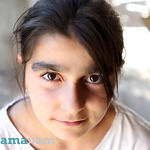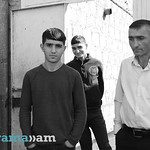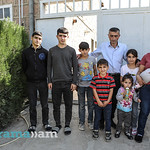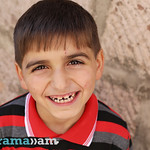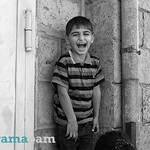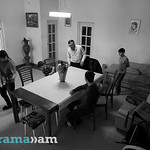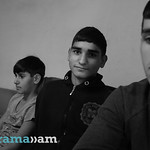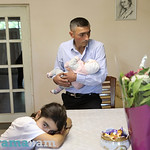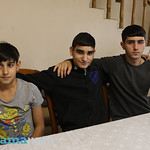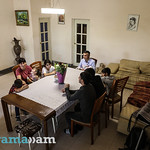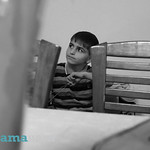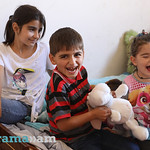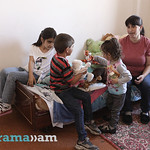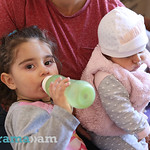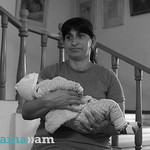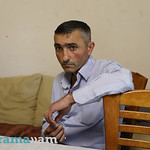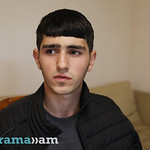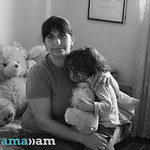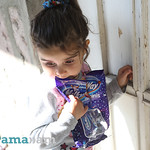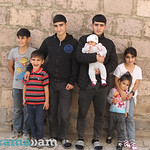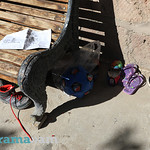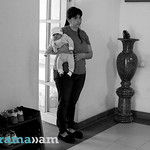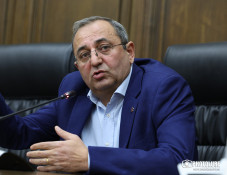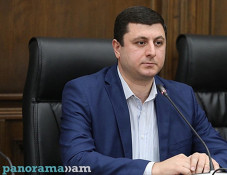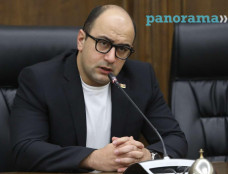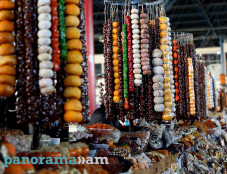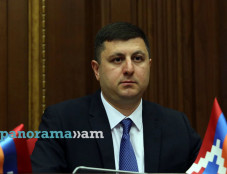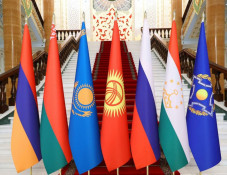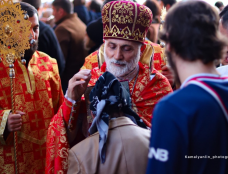
'I think about my home day and night', says displaced Artsakh man
"All my life I have witnessed war, and it hurts me that my children have also gone through it. The worst thing is that we have lost our home and native land," says 41-year-old Samvel Hambardzumyan, who was displaced from Artsakh together with his wife and seven children. The family has found temporary housing in Masis, a town in Armenia’s Ararat Province.
He is a native of Shushi, where he spent the best years of his life. After losing their home in the wake of the 44-day war in 2020, the family moved to Stepanakert.
The local government provided a house to Samvel’s large family. They settled in, equipped their new home and welcomed their seventh child, but the dreams of the Hambardzumyan family were shattered in an instant: they had to flee their home for the second time.
Samvel describes the traumas after the Azerbaijani attack on September 19. He says that his eldest son was at college, while hi four children were at school at the time. Samvel and his wife went to the town cemetery to pay a birthday tribute to the latter’s brother who was killed in the 44-day war. He says he then heard a strong explosion and the shelling began.
The couple immediately returned home to find their children. When Samvel managed to reunite the whole family and take them to the basement shelter, he and other men organized self-defense: they went to the nearby forests and camped there. After they spent two days there, it became known that the war had ended and an evacuation of the population was underway.
"After returning from combat outposts, I was reunited with my family and we walked 10 kilometers to the Stepanakert airport. Staying there for a week, we took the last bus to Goris," Samvel says.
.jpg)
They were offered temporary accommodation in a border village in Goris, but Samvel rejected it, fearing that his children would hear the sounds of gunfire again and would experience fresh trauma. He expressed desire to move to Masis. Samvel says that he loves the city and plans to build a new house here.
When the family went to the Masis Municipality to solve the housing issue, a stranger came up to them and, having learned that they were displaced from Artsakh, offered them to move to his house.
"Can you imagine, a stranger brought us to his house and demanded nothing in return, saying we could stay there until we solved all our problems," Samvel says and again thanks Tigran Hakobyan, who provided his two-story house to people forcibly displaced from Artsakh.
The family of nine is now temporarily sheltered in this house. Seven other displaced people joined them, and today 17 people live under one roof together with the house owner. The strangers have become relatives and live together.
.jpg)
However, Samvel says that the house is for sale and can be purchased at any moment, so they are at risk of ending up on the street.
"I have constantly lived through war, so have my children. We are tired of constant relocation and want permanent housing," he notes.
Samvel has health issues and had to retire after 14 years of military career. In Masis he tried to get a job at a tobacco factory, but the local clinic told him that he could not work at the factory due to health issues and was eligible for a disability class.
Today the family lives thanks to the support of philanthropists and kind people, and they have not yet fully received the 100,000 drams provided by the government. Now Samvel is looking for a job as a priority, after that they will try to solve the housing issue.
"A small land plot would suffice me. I can plant a garden and raise livestock. In Stepanakert we had a big garden and cattle, which helped us survive the 9-month blockade. I even started to sell my harvest, I gave chicken meat to neighbors so that people did not starve," he said.
.jpg)
Samvel's 16-year-old son Marat joins the conversation. He says that he mostly sold the garden harvest himself, gave it more to elderly people who could not afford buying vegetables.
"When people asked why I gave out vegetables for free, I told them that we had to deal with hardships together. In Armenia, a kind person helped us, sheltered us in his house and saved us from the street," he says.
Marat studied at the Armenian-Italian Educational Complex in Stepanakert. Now he is waiting for his college to be reopened in Yerevan and plans to continue his studies there or in a similar college.
He likes working with wood and is now thinking about making and selling wood products in an effort to help his family. After graduating from college, he is thinking of opening a woodworking workshop.
Marat feels great pain when he remembers their lost homes in Shushi and Stepanakert, and mentally walks constantly in their yard, park and the streets of their neighborhood.
"This is the second time we have lost our home. Words can't describe this pain, no one will understand, it’s just terrible," the boy says in a trembling voice and turns his head away so that we do not see his tears.
Marat, Tigran, Hayk, Mariam, Samvel, Katarina and Angelina are Samvel’s seven children and the youngest daughter is two months old.
Samvel admits that their thoughts are in Artsakh and every day they dream of returning to their homeland, but will never live under Azerbaijan’s rule.
"I think about my home day and night. I constantly think about the trees in the garden. Every day I imagine walking the streets of Stepanakert and reaching Shushi. We are ready to again live in our homeland, I will go back whenever it’s possible, but on condition that no Turks stay there. I will never live with them," Samvel stresses.
.jpg)
Related news
Newsfeed
Videos





